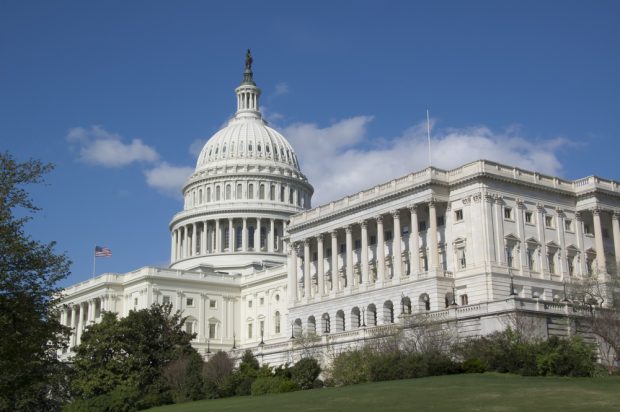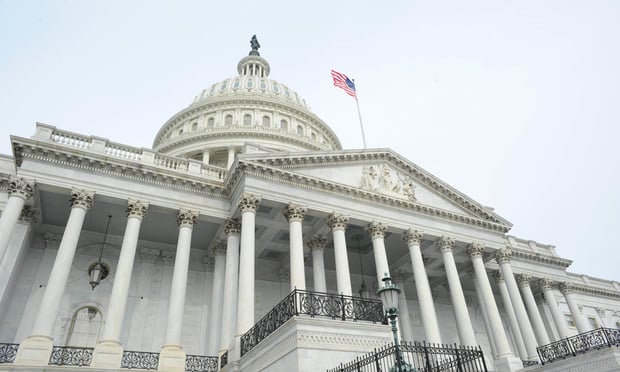 The U.S. Capitol Building.
The U.S. Capitol Building.
The House on Monday passed a bill that would ease the way for credit unions and banks to provide financial services to marijuana-related businesses.
The House passed the bill, 321-101; it now goes to the Senate, where its fate is unclear.
Recommended For You
The bill would provide a regulatory safe harbor for banks and credit unions providing financial services to marijuana related businesses in states where cannabis is legal.
CUNA endorsed the bill this year and in the last Congress. NAFCU, which has said in the past that the marijuana banking bill did not address all of the issues the trade group was concerned about, endorsed the bill in a letter shortly before the House considered it.
"We do support Congress taking the steps found in H.R. 1996 to provide greater clarity and legal certainty at the federal level for credit unions that choose to provide financial services to state-authorized [marijuana-related businesses] and ancillary businesses that may serve those businesses in states where such activity is legal," NAFCU Vice President of Legislative Affairs Brad Thaler wrote in a letter to House leaders.
"After years of bringing up this issue, I'm thrilled to see overwhelming support for this bipartisan, commonsense legislation in the U.S. House once again," Rep. Ed Perlmutter (D-Colo.), the primary House sponsor of the bill, said following its passage in the House. "I feel optimistic about the path forward for the SAFE Banking Act and, more broadly, reforms to our federal cannabis laws."
However, Rep. Bob Good (R-Va.) chastised the House for considering the measure.
"This legislation is about legitimizing and bankrolling the marijuana industry and making legalization inevitable," he said during the debate on the bill. "It is sad that the House is voting on this bill during a time when our country is seeing increases in addiction, depression and suicide."
In endorsing the bill, Thaler said NAFCU is concerned that the Financial Crimes Enforcement Network and the Justice Department only have released guidance on marijuana banking.
"Guidance can be rescinded at any time and in fact, former Attorney General Jeff Sessions took action in 2018 to essentially rescind" prior guidance, he wrote.
The House legislation brings some clarity to the issue, Thaler said.
In his own letter, CUNA President/CEO Jim Nussle reiterated the trade group's support of the measure.
"Credit unions operating in states where it is legal have members and member businesses involved in the cannabis market who need access to traditional depository and lending services, the absence of which creates a significant public safety issue," he wrote.
The House bill also would prohibit financial regulators from requiring an institution to stop doing business with a company solely based on reputational risk. That provision is intended to keep financial regulators from adopting an Obama Administration program known as "Operation Choke Point," which critics said made it difficult for gun-related businesses to find financial institutions willing to provide services to them.
That provision may make the bill more acceptable to Republican senators.
Last month, Sens. Jeff Merkley (D-Ore.) and Steve Daines (R-Mont.) introduced the marijuana banking bill in the Senate.
Senate Banking Chairman Sherrod Brown (D-Ohio) has said he wants to consider the marijuana banking bill along with comprehensive sentencing reform — a proposal that could delay its passage.
© 2025 ALM Global, LLC, All Rights Reserved. Request academic re-use from www.copyright.com. All other uses, submit a request to [email protected]. For more information visit Asset & Logo Licensing.







